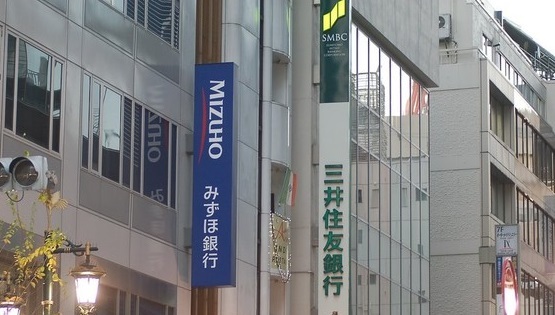Loans extended by Japanese lenders in Korea drop, conglomerates remain large borrowers
By Jung Min-kyungPublished : Aug. 20, 2019 - 15:50
The combined volume of loans extended by Japanese lenders operating here fell 5.4 percent on-month as of late June, data showed Tuesday. Meanwhile, loans taken out by local conglomerates accounted for more than half of the total volume, a report by the Financial Supervisory Service showed.
According to the report submitted to a main opposition lawmaker, the volume of loans stood at 23.4 trillion won ($20 billion) as of late June, down 5.4 percent from 24.7 trillion won the previous month.
According to the report submitted to a main opposition lawmaker, the volume of loans stood at 23.4 trillion won ($20 billion) as of late June, down 5.4 percent from 24.7 trillion won the previous month.

Among institutions, Mizuho Bank, one of Japan’s top three lenders, extended the largest volume of loans to Korea’s state-run institutions and private firms. A total 10.9 trillion won was lent, which accounted for 46.8 percent of the total volume.
About 63 percent or 13.1 trillion won was used to finance local conglomerates, while 17.7 percent or 3.7 trillion won went to nonbanking financial institutions or state-run institutions. Loans extended to banks accounted for 17.6 percent or 3.7 trillion won, while household loans amounted to 600 million won.
By sector, the manufacturing sector borrowed the most, accounting for 42.1 percent or 8.8 trillion won of the total volume. Finance and insurance followed with 33.8 percent or 7 trillion won.
Liberty Korea Party Rep. Kim Jung-hoon, who received the report, expressed concerns about the size of the loans and the negative effects this could have on South Korea’s employment if Japan decides to withdraw funds from the local capital market.
“It can be observed from the data that the volume of loans extended to conglomerates and the manufacturing sector is extensive,” Kim said.
“This can affect the employment rate in the respective firms and the sector, which is why we need to prepare measures and plans jointly with relevant agencies to counter Tokyo’s possible financial retaliation,” he added.
Amid an ongoing trade row between Seoul and Tokyo, concerns about Japan’s financial retaliation have drawn attention to the size of Japanese funds in the country in recent weeks.
By Jung Min-kyung (mkjung@heraldcorp.com)







![[Graphic News] More Koreans say they plan long-distance trips this year](http://res.heraldm.com/phpwas/restmb_idxmake.php?idx=644&simg=/content/image/2024/04/17/20240417050828_0.gif&u=)
![[KH Explains] Hyundai's full hybrid edge to pay off amid slow transition to pure EVs](http://res.heraldm.com/phpwas/restmb_idxmake.php?idx=644&simg=/content/image/2024/04/18/20240418050645_0.jpg&u=20240419100350)






![[From the Scene] Monks, Buddhists hail return of remains of Buddhas](http://res.heraldm.com/phpwas/restmb_idxmake.php?idx=652&simg=/content/image/2024/04/19/20240419050617_0.jpg&u=20240419175937)

![[KH Explains] Hyundai's full hybrid edge to pay off amid slow transition to pure EVs](http://res.heraldm.com/phpwas/restmb_idxmake.php?idx=652&simg=/content/image/2024/04/18/20240418050645_0.jpg&u=20240419100350)

![[Today’s K-pop] Illit drops debut single remix](http://res.heraldm.com/phpwas/restmb_idxmake.php?idx=642&simg=/content/image/2024/04/19/20240419050612_0.jpg&u=)